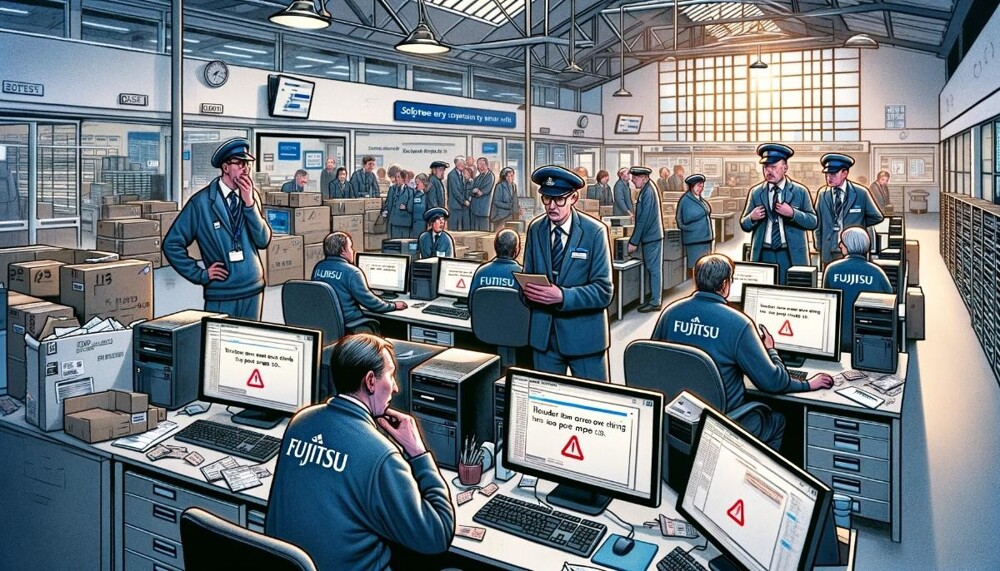Fujitsu apologizes for software that sent innocent British postal employees to jail (3 photos)
There was an error. Happens. 
The scandal about the biggest IT failure in Britain has been going on for more than 20 years. In 1999, the Japanese company Fujitsu developed the Horizon system for the country's post offices at a cost of a billion pounds. The postal accounting system turned out to be, to put it mildly, defective. Due to glitches, it produced accounting errors and reported major shortfalls. Because of this, at least 900 postal employees were injured. The vast majority got off with dismissal and fines, several people were sent to prison, and one person committed suicide because of the scandal (there is information that four postal employees committed suicide, but only one case is reliable and documented).
And recently, at a hearing in the British Parliament, the head of the European division of Fujitsu, Paul Patterson, decided to make an official apology and said that the company has a “moral obligation” to contribute to compensation for the victims.
"Fujitsu would like to apologize for our role in this terrible miscarriage of justice. We were involved from the very beginning, our systems were flawed and we contributed to the harassment of many postal workers. We sincerely regret this," said Paul Patterson. 
Paul Patterson
Postal employees shouted from the very beginning that the problem lay in the Horizon software, but no one listened to them. The problem began to be noticed only in 2009 after the publication of Computer Weekly magazine, which talked about failures in the mail system. That same year, one of the victims created the Justice for Postal Workers organization, which included more than 500 people. Only in 2017, thanks to a class action lawsuit in the Supreme Court, which recognized their case, the British authorities began to overturn convictions and pay compensation. To date, the amount of payments has amounted to about $73 million. 
What's funny is that the software developers knew about its shortcomings and system failures at an early stage. When asked why the company did not do anything to eliminate the defects, Patterson replied that he did not know - because Fujitsu’s behavior in those years “was not consistent with the company’s modern values.”
"I believe we are an ethical company. The Fujitsu of today is very different from the company of the early 2000s and we need to clearly demonstrate that to our customers, the government and the wider community here in the UK," Patterson said.




























